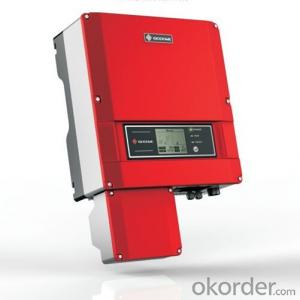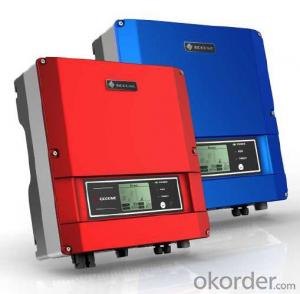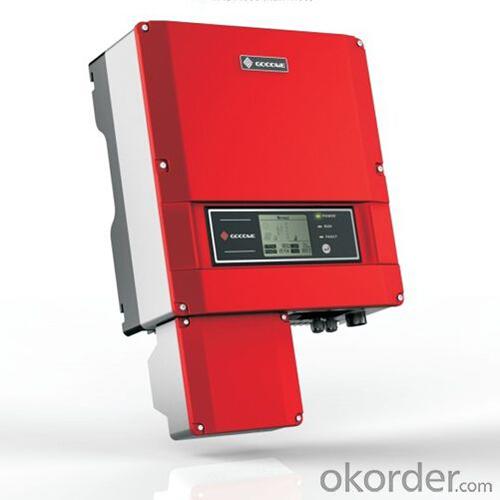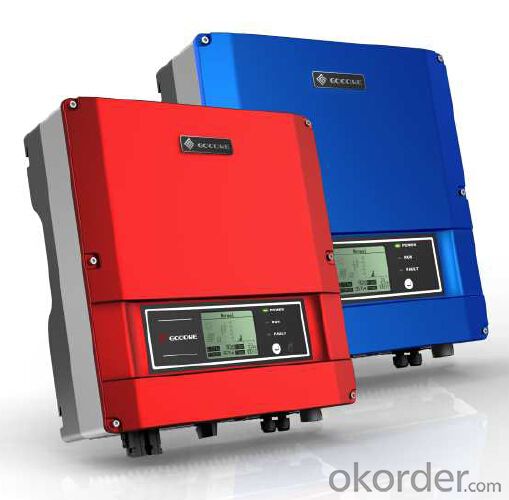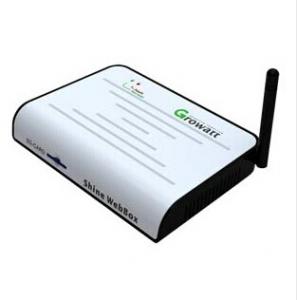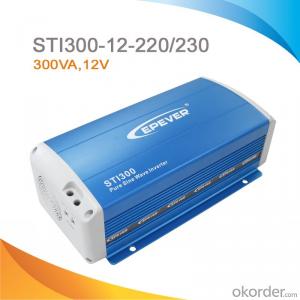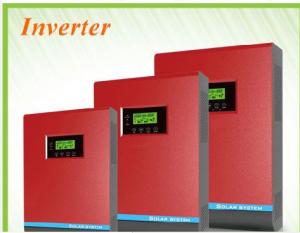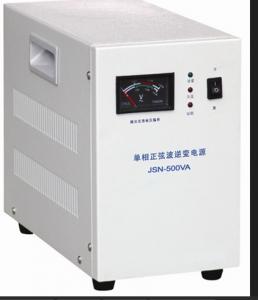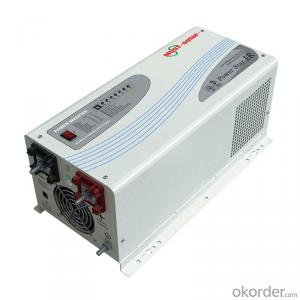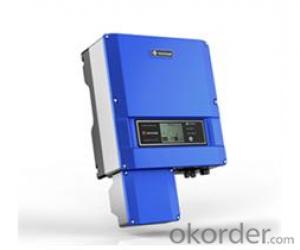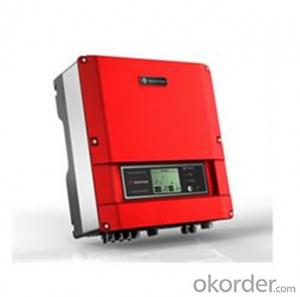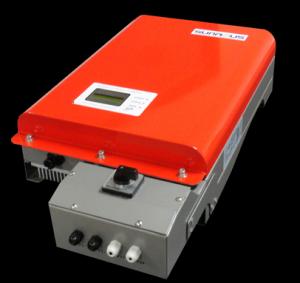Siemens Solar Inverter GW4200D-DI (High Frequency Isolated)
OKorder Service Pledge
OKorder Financial Service
You Might Also Like
GW3000/3600/4200D-DI (High Frequency Isolated) is the new on-grid PV inverter which integrated with most advanced technology, come with 10 years warranty,
and are designed to meet the new IEE1547 requirements for the North American market. Also it’s suitable for thick-film modules.
Easy installation and simple operation make them ideal for residential and small-to-medium commercial applications.
GoodWe inverters, with ever-increasing efficiency and high stability,
could ensure you better overall performance of solar power systems and shorter payback periods.
Datasheet
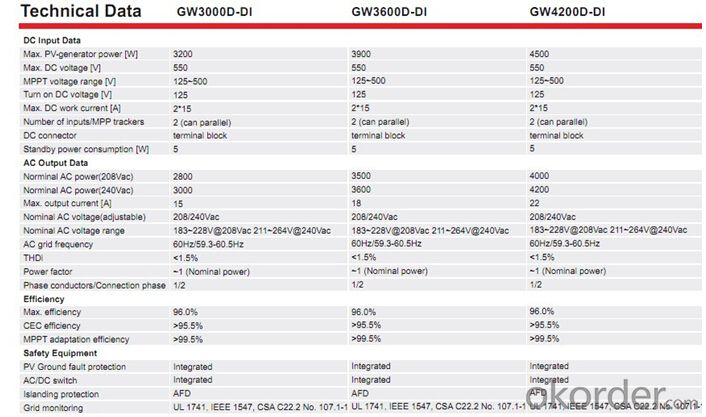
- Q: What are the different types of solar inverters?
- There are several types of solar inverters, including string inverters, microinverters, and power optimizers.
- Q: How does the power factor affect the performance of a solar inverter?
- The power factor affects the performance of a solar inverter by influencing its efficiency and capacity to convert DC power from solar panels into AC power. A low power factor can result in increased losses and reduced efficiency, leading to lower overall performance. On the other hand, a high power factor ensures efficient power conversion, minimizing losses, and optimizing the inverter's performance.
- Q: The function of photovoltaic grid - connected inverter
- Finally, a sinusoidal AC output for a grid-connected photovoltaic power generation system is generated by a low-pass filter.
- Q: What is the efficiency of a solar inverter?
- The efficiency of a solar inverter refers to its ability to convert the direct current (DC) generated by solar panels into alternating current (AC) for use in homes or businesses. It is typically expressed as a percentage and indicates how effectively the inverter can convert the solar energy into usable electricity. Higher efficiency means less energy loss during the conversion process, resulting in more efficient utilization of the solar power.
- Q: Can a solar inverter be used for three-phase power systems?
- Yes, a solar inverter can be used for three-phase power systems. Three-phase solar inverters are specifically designed to convert the DC power generated by solar panels into AC power for three-phase electrical systems. These inverters are capable of handling the higher voltage and power requirements of three-phase systems, making them suitable for commercial and industrial installations.
- Q: What is the warranty period for a solar inverter?
- The warranty period for a solar inverter typically varies depending on the manufacturer and model, but it commonly ranges from 5 to 10 years.
- Q: Can a solar inverter be used in conjunction with a generator?
- Yes, a solar inverter can be used in conjunction with a generator. In fact, it is a common practice to combine these two systems to create a hybrid power solution. The solar inverter can convert the direct current (DC) electricity generated by the solar panels into alternating current (AC) electricity, which can be used to power household appliances. When the solar panels do not generate enough electricity, the generator can kick in and provide additional power to meet the demand. This combination allows for a more reliable and efficient power supply, especially in areas with intermittent sunlight or during power outages.
- Q: What is the role of a power control unit in a solar inverter?
- The role of a power control unit in a solar inverter is to regulate and control the flow of electricity between the solar panels and the grid. It ensures maximum power output from the solar panels by optimizing their performance and matching it with the electrical requirements of the grid. Additionally, it provides protection against overvoltage, overcurrent, and other electrical faults to ensure safe and efficient operation of the solar inverter system.
- Q: What is the maximum output voltage of a solar inverter?
- The maximum output voltage of a solar inverter is typically determined by the specific model and specifications of the inverter being used. It can vary depending on factors such as the size and configuration of the solar array it is connected to. Generally, for residential solar installations, the maximum output voltage of a solar inverter can range from 230V to 240V for single-phase systems, and up to 400V for three-phase systems.
- Q: Can a solar inverter be used with a solar-powered waste management system?
- Yes, a solar inverter can be used with a solar-powered waste management system. A solar inverter is responsible for converting the direct current (DC) produced by solar panels into alternating current (AC) that can be used to power various appliances and systems. In the case of a solar-powered waste management system, the solar inverter would ensure that the electricity generated by the solar panels is compatible with the system's components, such as motors, sensors, and controls. This would enable the waste management system to operate efficiently using clean and renewable solar energy.
Send your message to us
Siemens Solar Inverter GW4200D-DI (High Frequency Isolated)
OKorder Service Pledge
OKorder Financial Service
Similar products
Hot products
Hot Searches
Related keywords
